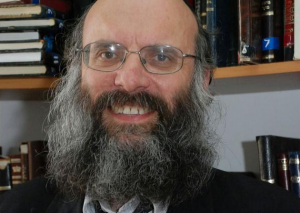 This November marks a year since six holy souls were brutally massacred by Arab terrorists in Kehillat Bnei Torah—a Har Nof synagogue—most while wearing Tefillin as they prayed during Shacharit services.
This November marks a year since six holy souls were brutally massacred by Arab terrorists in Kehillat Bnei Torah—a Har Nof synagogue—most while wearing Tefillin as they prayed during Shacharit services.
Listen to NCSY Alum Rabbi Joe Werfel’s firsthand account of the tragedy.
Five of those murdered were prominent Rabbis of world renown. Their names were Rabbi Moshe Twersky, Rabbi Avraham Shmuel Goldberg, Rabbi Kalman Levine, and Rabbi Aryeh Kupinsky, Rabbi Chaim Yechiel Rothman — may their memories be for a blessing.
Rabbi Moshe Twersky was a grandson of The Rav — Rabbi Yosef Dov Soloveitchik zt”l. He served as rebbe and rosh kollel (dean) at Yeshiva Torat Moshe in Jerusalem and was extremely devoted to his students. According to OU kosher CEO Rabbi Menachem Genack, Rabbi Twersky “was reserved, but this did not hide his extraordinary and insightful intellect.”
Read OU Kosher CEO Rabbi Menachem Genack’s thoughts on Rabbi Moshe Twersky zt”l and the Har Nof tragedy
Listen to Rabbi Chaim Ilson’s hesped (eulogy) for Rabbi Twersky zt”l
Rabbi Avraham Shmuel Goldberg was a British-born rabbi from Liverpool. Aside from his work building computer programs for various projects, he served as an advisor for ultra-Orthodox who sought to enter the job market.
Rabbi Kalman Levine was born and raised in Kansas City, Missouri and made Aliyah in the 1980s. He devoted himself to study, at the Lev Avraham Kollel in Mea Shearim and the evening kollel at Kehillat Bnei Torah. Part of his life’s work was putting Orthodox Judaism in a positive light.
Rabbi Aryeh Kupinsky was born and raised in the metropolitan Detroit area, where his family were members of what is today Young Israel of Oak Park, one of the biggest Orthodox Jewish congregations in Michigan. He was a kashrut supervisor and was known to never refuse anyone seeking assistance in any form, always seeking ways to assist others.
Rabbi Chayim Yechiel Rothman, who succumbed to his injuries just this past week, was originally from Toronto and made Aliyah in 1985. He worked in the State Comptroller’s Office and would pray and study at Kehillat Bnei Torah. He was a regular participant in the 6:25 morning prayer service at the synagogue and served as one of the service coordinators. During the course of the attack, he is reported to have thrown objects at the terrorists and tried to fight them before he himself was struck down.
Master Sergeant Zidan Seif joined the Israel Police in April 2011 and served as a traffic control inspector at the Jerusalem Police Department. He was one of the first policemen to arrive on the scene and heroically sacrificed his life when he confronted the terrorists.
Soon after the carnage, during their grief, some of the widows sent a special request. They asked us to call on Jewish men to put on tefillin on the Shloshim of their husbands’ murders. And they asked us to urge Jewish women to light Shabbat candles along with their Chanukah lights. As the Yartzeit approaches, (November 7th/25 Cheshvan), the widows wish to honor the memories of their husbands by making the following request:
To Jewish Men
- Attend the daily minyan, especially on the Sunday after theYartzeit, November 8th to remember our fallen husbands;
- If you do not regularly don Tefillin, please do so on Sunday, November 8th to commemorate the Yartzeit which actually falls on Shabbat when Tefillin is not worn;
- If you regularly pray at a daily minyan, try to influence a fellow Jew, who doesn’t do so, to attend on the Yartzeit and/or to put on Tefillin
To Jewish Women
- If you don’t usually light Shabbat candles, please do so on the Friday afternoon, November 6th before sundown, preceding the Yartzeit.
- If you already observe the mitzvah of Shabbat candle lighting, in addition, please recite five Tehillim (psalms) in our husbands’ memory: You may choose from the following suggestions for such appropriate times: Psalm numbers 16, 20, 25, 38, 54, 81, 85, 86, 87, 102, 130, 142. This should be done on Friday afternoon as well.
- Ask someone that doesn’t usually light Shabbat candles to do so on this occasion.
The widows want to express appreciation and thanks to everyone who remembers their murdered husbands with prayers and mitzvoth. Their heartfelt hope is that there will be no more such tragedies and that in the future we will know only smachot.
